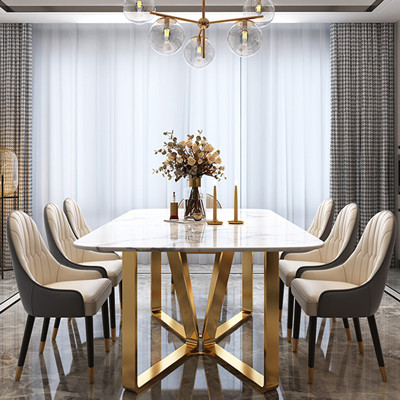Believe it or not, the shape of your dining table can play a significant role in shaping the dynamics of conversations during meals. Different table shapes encourage different types of interactions, contributing to the overall dining experience.
Round tables are known for fostering inclusivity. With no distinct head or end, all guests have an equal position, making it easier for everyone to engage in conversation. This shape is perfect for intimate gatherings and encouraging free-flowing discussions.
Rectangular tables, on the other hand, can create a more structured atmosphere. Guests seated at the longer sides might engage in more focused conversations within their immediate vicinity. The head and end positions can naturally become the center of attention, making them suitable for occasions when hierarchy is acknowledged.
Square tables offer a balanced compromise between round and rectangular. They maintain the inclusive nature of round tables while providing the structured layout of rectangular tables. However, for larger gatherings, seating arrangements might need to be managed strategically to maintain conversation flow.
Ultimately, the shape of your dining table contributes to the overall social dynamic of the meal. Consider the nature of your gatherings and the type of conversations you want to encourage when choosing the table shape that suits your space and preferences.








